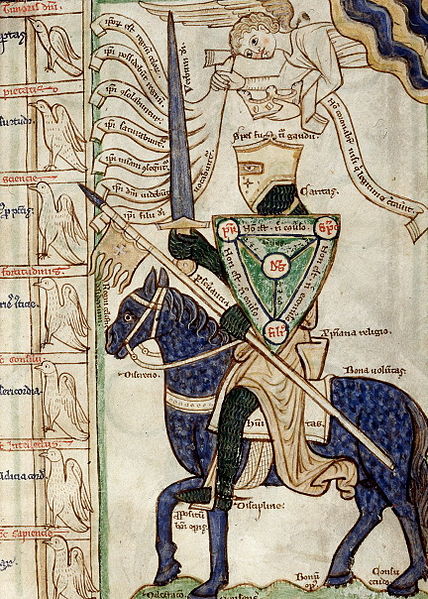The miles Christianus or miles Christi is a Christian allegory based on New Testament military metaphors, especially the Armor of God metaphor of military equipment standing for Christian virtues and on certain passages of the Old Testament from the Latin Vulgate. The plural of Latin miles (soldier) is milites or the collective militia.
An early example of the miles christianus allegory in a manuscript of the Summa Vitiorum by William Peraldus, mid 13th century. The knight is equipped with a detailed Armour of God, including an early depiction of the Shield of the Trinity, and he is crowned by an angel holding the gloss non coronabuntur nisi qui legitime certaverint "none will be crowned but those who truly struggle" and in the other hand a list of the seven beatitudes, matched with the
The Christi milites to the left of the Adoration of the Mystic Lamb in the Ghent Altarpiece (c. 1430)
The phrase "Armor of God" is derived from Ephesians 6:11: "Put on the whole armour of God, that ye may be able to stand against the wiles of the devil.". As a biblical reference, the metaphor may refer to physical armour worn by God in metaphorical battles, or it may refer to vigilant righteousness in general as bestowed by the grace of God : "The night is far spent, the day is at hand: let us therefore cast off the works of darkness, and let us put on the armour of light."
Royal Military College of Canada memorial window Sir Lancelot wearing the whole Armour of God



